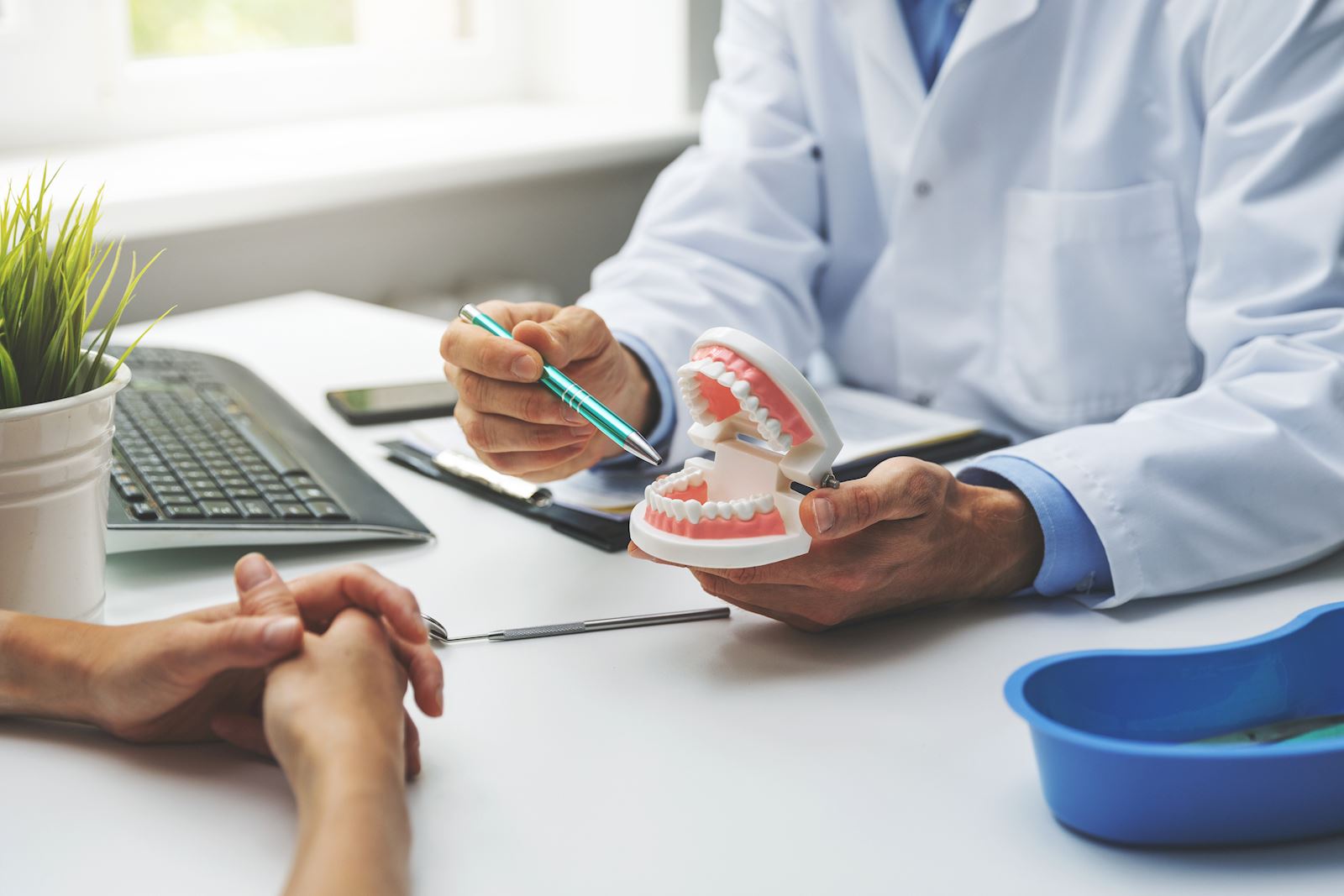Repair Chipped, Cracked, or Broken Teeth
posted
by Dr. Beau Beecher, DDS on 8/10/2021
in
General

Your teeth may be strong, but they are far from unbreakable. In the course of everyday life, teeth commonly chip, break, or crack from falling and making contact with the ground, being struck in the face or mouth, or biting down on something hard. Though you may not experience pain when it happens, it’s essential to schedule an appointment with your dentist as soon as possible. Read on to learn about the treatment options available for each issue, as well as the self-care steps you can take for relief prior to visiting your dentist.
Fixing Chipped, Cracked, and Broken Teeth
If you’ve recently experienced damage to your teeth, it’s natural to wonder what kind of issue you’re facing and how it can be repaired. While each issue can vary in severity, rest assured there are treatment options available to bring you relief and resolution. Here are some of the most common solutions for fixing chipped, cracked, and broken teeth.
Fixing a Chipped Tooth
In many cases minor chips can be painless and may not require significant treatment. Your dentist may opt to use tooth filling material to prevent the chip from worsening, or simply polish and smooth out the chipped area. However, significant chips can expose the inner nerve endings of the tooth leading to increased sensitivity and pain when chewing. If you’re experiencing these symptoms, a crown may be necessary to restore the shape of the tooth. In addition to protecting you from painful sensitivity, these treatments will also help prevent decay from creeping deeper into the tooth and causing additional issues in the long run.
Fixing a Cracked Tooth
Cracks often tend to be limited to the enamel of the tooth, but can extend as deep as the root depending on whether it’s a surface crack or a fracture of the whole tooth. These aren’t always immediately recognizable to the untrained eye, and you may only feel pain when chewing or eating and drinking hot or cold foods and beverages. This rapid change in temperature in your mouth typically triggers the feeling of pain in the area of the cracked tooth.
Minor cracks are not as serious and can be addressed with light treatment, but a complete crack is a different story. Some can be repaired with filling material and a crown to stop the spread of the crack. If nerve endings and other tissues are damaged, a root canal might be necessary.
Fixing a Broken Tooth
When it comes to damage, broken teeth are the most serious of the bunch. Broken cusps -- the pointed chewing surfaces of the teeth -- typically won’t cause much pain. Despite the lack of pain, broken cusps will need to have their shape restored with a crown.
Deep breaks are much more noticeable and will lead to pain, sensitivity, and even bleeding if the nerve is exposed. Root canal treatment will be required to remove the nerve, followed by a crown to restore the tooth. If you suspect you have a deep break, do not try to endure the pain and power through. When left untreated the broken tooth can decay and potentially require extraction.
Treating Chipped, Cracked, or Broken Teeth at Home
To be clear, there is no substitute for professional treatment of chipped, cracked, and broken teeth. The first step you should always take is to see your dentist as soon as possible. In the meantime, these are a few self-care steps you can take:
- Rinse your mouth with warm water. This will help keep the tooth clean until you visit the dentist.
- Avoid hot and cold food and beverages as much as possible to reduce discomfort from heightened sensitivity.
- If there is pain or swelling, apply a cold pack to your cheek or lips where the affected tooth is located.
- Over-the-counter pain relievers or anti-inflammatory drugs can be used to temporarily help reduce pain. Do not exceed the recommended dosage.
- If your tooth is bleeding, apply gauze to the affected area until the bleeding stops.
Schedule an Appointment With a Kimball & Beecher Dentist
Chipped, cracked, and broken teeth can certainly be frustrating, but don’t have to make your life miserable. There are a number of treatment options available to address these issues no matter how big or small. Scheduling an appointment with a dental professional like your local Kimball & Beecher dentist is the easiest way to get on the road to recovery.